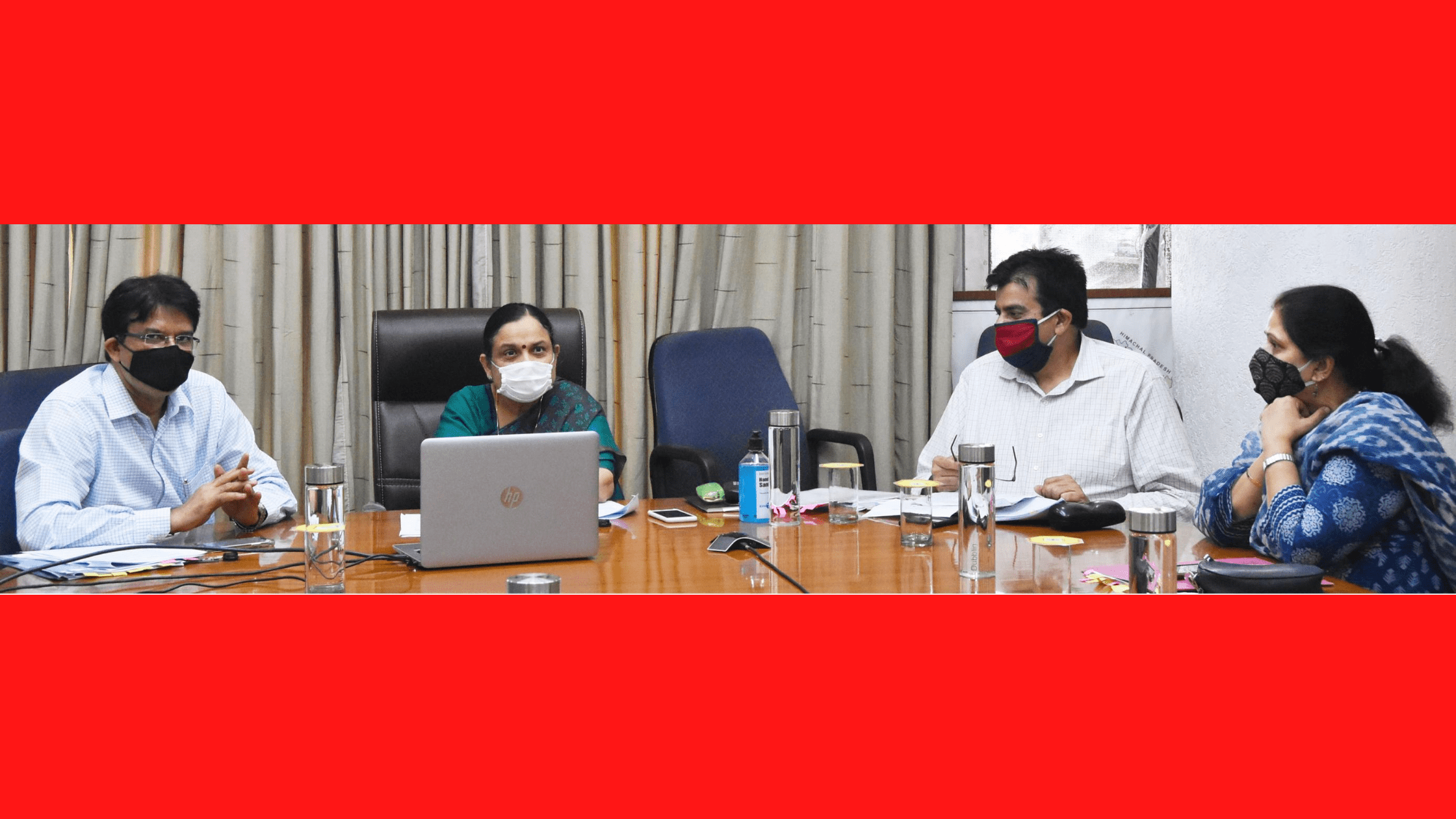Chandigarh, August 18 – Haryana Government has started large scale campaigns to reduce chances of stubble burning in view of the upcoming rice harvesting season, wherein the farmers will be made aware of detrimental effects of stubble burning.
This information came to light during a meeting of Haryana Chief Secretary, Mrs. Keshni Anand Arora with Chairman, Environment Pollution (Prevention and Control) Authority for National Capital Region, Mr. Bhure Lal, on the progress made with regard to implementation of in-situ and ex-situ management measures through video conferencing at Chandigarh today. Additional Chief Secretary Agriculture and Farmers’ Welfare Department, Mr. Sanjeev Kaushal, Additional Chief Secretary, Environment and Climate Change Department, Mrs. Dheera Khandelwal, Additional Chief Secretary, Power Department, Mr. T.C. Gupta were present in the meeting.
The Chief Secretary was apprised in the meeting that all district officers have been given directions that they should focus on the villages which fall under the yellow and red zones. Large scale campaigns have been conducted by using IEC (Information, Education and Communication) activities like village and block level camps and functions, social media awareness and demonstration vans. Among other activities, farmers have been imparted training to operate and maintain in-situ crop residue management machinery and have been given a demonstration of in-situ management techniques in their fields. The Agriculture Department has also put up hoardings and banners at prominent places to spread awareness about in-situ crop residue management.
In the meeting, Additional Chief Secretary, Power Department, Mr. T.C. Gupta apprised that about 8 lakh metric tonnes of crop residue management is being done annually through ex-situ management measures in the state. Also, permission has been granted to 4 Bio-mass Power Projects for Bio-mass Crop Residue Management in the state, of which 15 MW projects are underway in Kurukshetra and Kaithal. With this, about three and a half lakh metric tonnes of crop residues will be managed. Besides, work will soon be started in Jind and Fatehabad on 9.9 MW projects. Sharing more details, he said that till now 66 letters of intent have been issued to various oil companies across the state for erecting compressed biogas capacity of 353.56 tonnes per day. The setting up of these plants will enhance crop residue management to 22 lakh metric tonnes per year.
He further apprised that the non-basmati rice growers are also being given incentives for crop residue management within seven days at the rate of Rs 100 per quintal as per the directions of the Supreme Court. The State Government has facilitated small and marginal farmers growing non-basmati rice and muchal variety of basmati rice by providing adequate machinery and Rs 1,000 per acre as operating cost. For both these purposes, a provision of Rs 453 crore has already been made in the state budget by the state government.
Sharing details of the ‘Mera Pani, Meri Virasat’ Scheme, Additional Chief Secretary of Agriculture and Farmers’ Welfare Department, Mr. Sanjeev Kaushal informed that this Scheme which focuses on conserving ground water has been implemented during Kharif-2020 and under Crop Diversification Scheme, in areas with ground water level below 40 metres the farmers have been encouraged to sow crops like maize, millet, cotton, pulses and horticultural crops which consume less water, in place of paddy. Under this scheme, the state government has promised to give Rs 7,000 per acre, with the first instalment of Rs 2,000 after verification of the crop and the remaining Rs 5,000 at the time of harvesting the crop. For this, 40,960 hectare area of the state has been verified. In these areas, 100% procurement will be done at the minimum support price (MSP). In addition, a Bhavantar Bharpai Yojana is being run for the purchase of vegetables. Online applications have been invited for subsidies on nine types of crop residue management in the district under Crop Residue Management (CRM) Scheme. A goal has been set to provide 820 Custom Hiring Centres (CHCs) and 2,741 personal equipment for the year 2020-21.

 हिंदी
हिंदी






